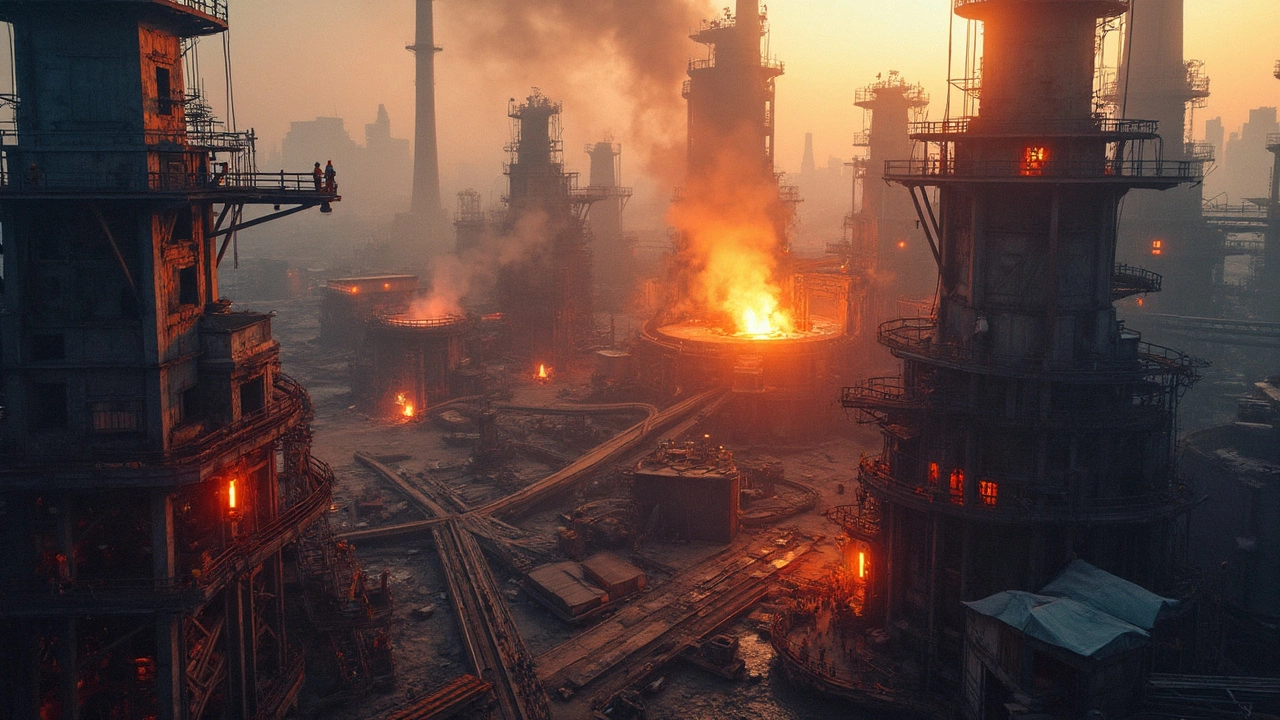Steel Manufacturing Plants
When talking about Steel Manufacturing Plants, large‑scale facilities that transform iron ore and scrap into finished steel products. Also known as steel plants, they are the backbone of modern infrastructure, automotive, and construction sectors. Green Steel, steel made with reduced carbon emissions using renewable energy or hydrogen is rapidly becoming a must‑have capability, while Industrial Parks, designated zones that host multiple manufacturing units with shared utilities provide the logistical backbone that keeps raw material flow smooth. The Supply Chain, network of suppliers, transport, and distribution channels delivering ore, coal, and finished steel links these plants to end‑users worldwide. Steel manufacturing plants encompass ore processing, require blast furnace or electric arc furnace technology, and influence national economic growth. They also drive demand for skilled labor, energy infrastructure, and environmental compliance. Understanding these connections helps you see why a single plant can reshape a region’s job market and export profile.
Key Factors Shaping Steel Manufacturing Plants
First, the choice of production method matters. Traditional blast furnaces rely on coke, while electric arc furnaces melt scrap using electricity, offering flexibility and lower emissions. Second, location drives cost efficiency; plants sited in steel manufacturing plants clusters near ports or raw material mines cut logistics expenses dramatically. Third, government policies around carbon taxes and incentives for Renewable Energy Integration, using solar, wind, or hydro power to run steel processes tip the scale toward greener operations. Fourth, technological upgrades such as AI‑driven furnace monitoring and predictive maintenance reduce downtime and boost yield. Finally, the global demand for high‑strength, lightweight steel in automotive and renewable energy projects forces plants to adopt advanced alloying techniques. Each factor forms a web: policy influences technology adoption, technology affects supply chain design, and supply chain efficiency determines plant profitability.
What you’ll find next is a curated collection of articles that dive deeper into product innovation, market validation, profitability metrics, and sector‑specific challenges—all relevant to anyone watching steel manufacturing plants evolve. Whether you’re an investor, an entrepreneur, or a supply‑chain manager, the posts below give practical tips and data‑backed insights you can act on today.
